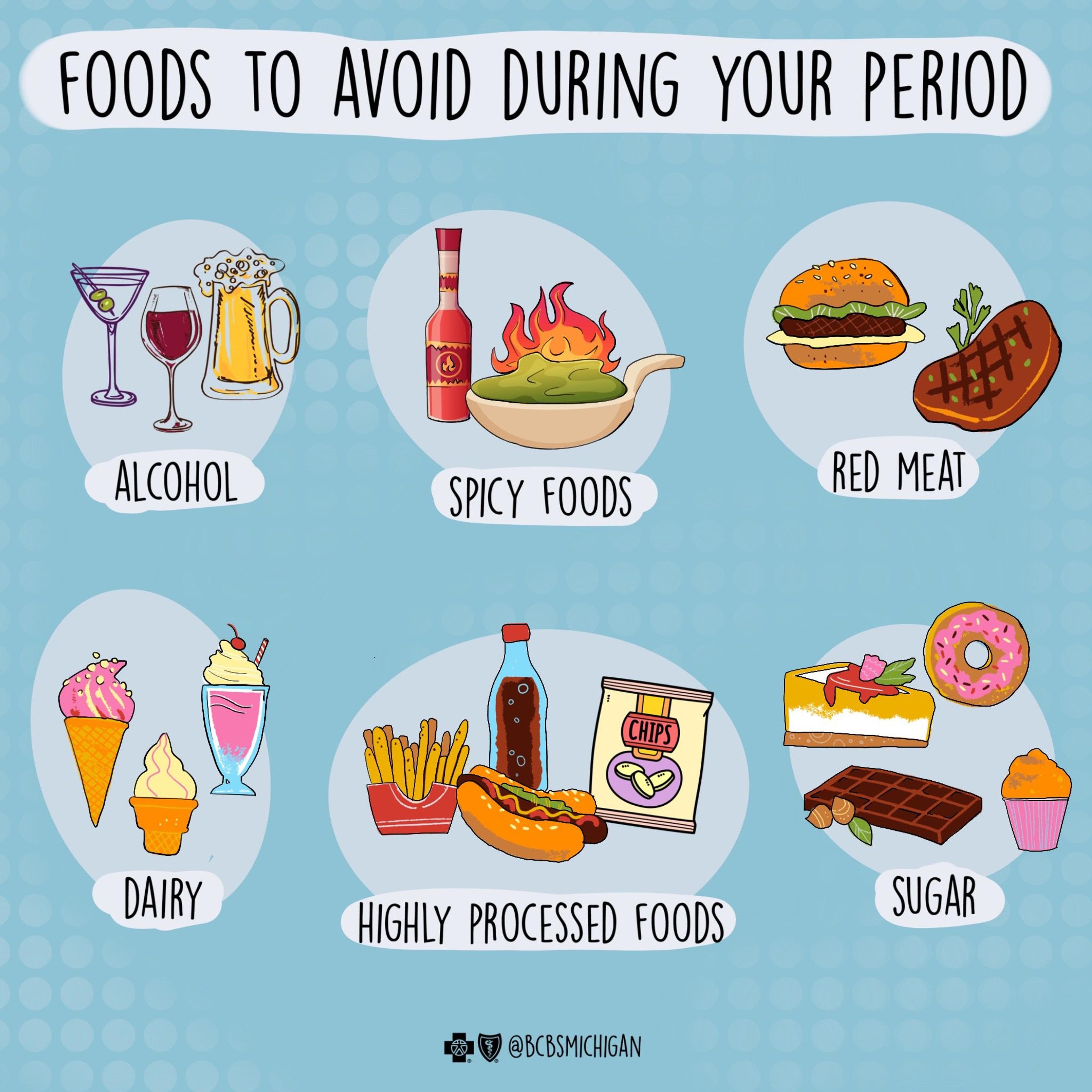Foods to Avoid During Your Period
Shandra Martinez
| 3 min read

Ladies, raise your hand if having your period has ever made you feel uncomfortable. Sometimes, those few days a month have you feeling like you need a little extra comfort – the kind that can be found by digging into some juicy fried chicken, an extra cheesy helping of mac and cheese, or even a giant hot fudge sundae. But this may not be the kind of self-care that’s actually good for you. Let’s look at some of the foods you should be avoiding during your period.
For most teens and women, periods are no picnic. Research shared by the National Institutes of Health shows that 84% of women report having some pain association with their periods. Of those, more than 40% say they feel discomfort every month. Other menstruation-related symptoms can include cramps, lower back pain, headache, fatigue and bloating.
Cravings create problems. Lots of women may especially crave high-fat, high-sugar snacks during their period. While they may taste great and be comforting, they likely won’t make you feel better after you eat them. According to the Cleveland Clinic, here are some side effects from eating too much sugar or too many carbs during your period:
- Feeling bloated
- Sugary foods increase insulin levels, which cause hormonal imbalances
- Constipation
- Fatigue
- Headaches

Foods to avoid: Cravings for high-fat, high-sugar foods are likely due to an increased level of the hormone progesterone, which peaks just before a period begins. Research has shown that progesterone is linked to a larger appetite, according to Healthline. There are some foods that can worsen symptoms during your period. Here are some foods to either avoid, or limit the amount you eat:
Alcohol: Consuming beer, wine or liquor can be dehydrating. Drinking too much can also trigger bloating and headaches.
Red meat: Beef and pork are high in a compound called prostaglandins. During menstruation, the body also produces a lot of prostaglandins, which causes cramping. Eating too much red meat can add to the cramping.
Sugar: Even if you have a sweet tooth, try to moderate your sugar intake during your period. Eating too many sweet things can cause your energy level to crash later. This can leave you feeling irritated or anxious.
Spicy foods: If you can’t tolerate a high spice level normally, definitely stay away from overly spicy foods during your period. They could cause intestinal issues and an upset stomach.
Dairy: If you are sensitive to dairy, or even lactose intolerant, don’t pick your period days to plow though ice cream or a yogurt parfait. Any food that normally triggers food sensitivities or discomfort are foods to avoid during your period.
Highly processed foods: Any foods that are highly processed or contain a lot of sodium should be avoided during your period. Consuming extra salt – whether you shake it on your food or it already contains it – it not good during menstruation because it can make bloating worse.
Related:
Photo credit: Getty Images





